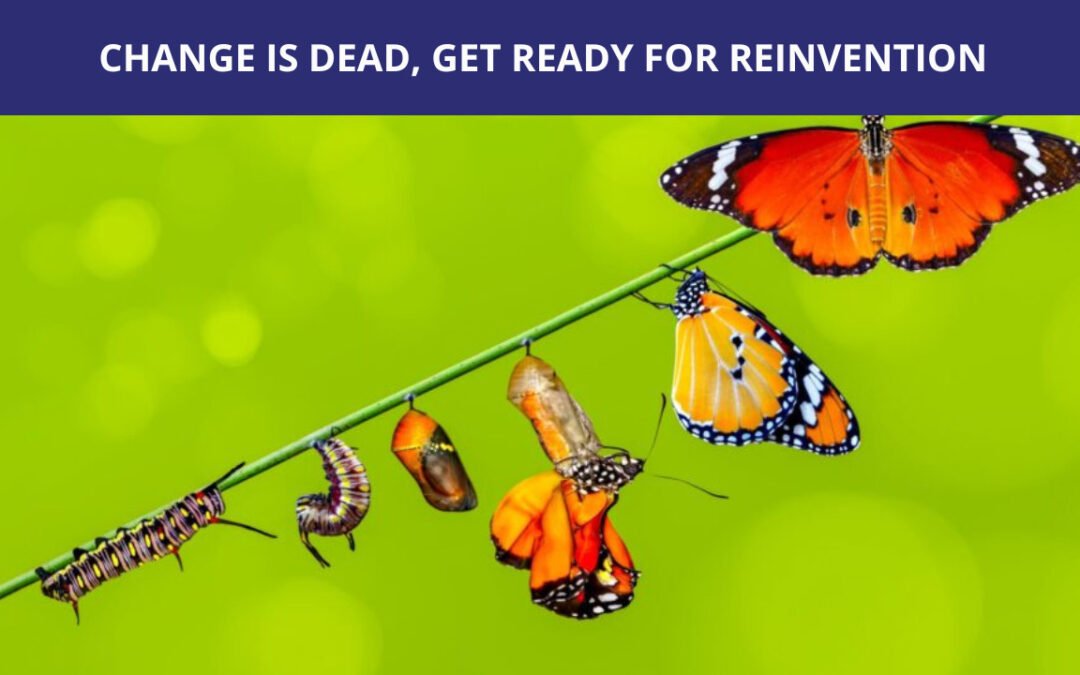
by Julia Felton | Aug 4, 2022
One thing that I think we can all agree on is that the last two years have changed forever the way we live and work. As much as people talk about things returning to normal after the COVID pandemic, in my opinion, they never will. Too many parameters have changed, people’s mindsets and behaviours have changed, our business processes and systems have changed, and in many cases, our entire product offering has changed and adapted to meet the ever-changing needs of our clients.
Very importantly the dynamics of our teams have changed and leaders need to become very aware of this. Leaders cannot assume that things will revert to how they were, and whilst for some leaders this might prove to be challenging, many leaders I am speaking with are excited about this opportunity which allows them to reframe how their teams operate.
Leaders have the opportunity to reinvent their teams and businesses; to start afresh rather than returning to the unhelpful behaviours and out of date approaches they once used. But what exactly is reinvention and how does it differ from change?
When you look up the term reinvention in the dictionary it says: “the action or process through which something is changed so much that it appears to be entirely new” and this contrasts with change which is defined as “to make (someone or something) different; alter or modify”.
So in essence reinvention could be defined as a radical change to creates something entirely new. Athos, Goss, Pascale in an article in the Harvard Business Review: The Reinvention Roller Coaster: Risking the Present for a Powerful Future provides the following definition:
“Reinvention is not changing what is, but creating what isn’t. A butterfly is not more caterpillar or a better or improved caterpillar; a butterfly is a different creature. Incremental change isn’t enough for many companies today. They don’t need to change what is; they need to create what isn’t.” –
For which Athos, Goss and Pascale add, “When a company reinvents itself, it must alter the underlying assumptions and invisible premises on which its decisions and actions are based. To reinvent itself, an organisation must first uncover its hidden context. Only when an organisation is threatened, losing momentum, or eager to break new ground will it conform its past and begin to understand why it must break with its outmoded present. And only then will a company’s employees come to believe in a powerful new future, a future that may seem beyond the organisation’s reach.”
Reinvention Mindsets
What is interesting for me is the different mindsets that are involved in change versus reinvention. As individuals and organisations we often continuously push back and resist change; even when we understand that change is an ongoing necessity if we are going to effectively adapt and sustain any form of continued relevance in moving forward into the future.
There are a variety of reasons as to why leaders and team members resist change and these include:
- an unwillingness to part ways with or release strategies that have led to previous success,
- lack of trust and/or relationship,
- lack of understanding or clarity in the communication of the change,
- a possible loss of individual or organisational status or hierarchy,
- lack of capacity to effectively implement the change,
- fear of the unknown, uncertainty, or failure that can accompany a change.
All of these factors must be understood and addressed if any change initiative is to take hold.
And while change is a natural, but not necessarily comfortable process, individual or organisational transformation or reinvention is not.
Re-invention requires a different mindset, a completely different level of capacity, and a very different way of considering the future, which requires new behaviours that necessitate new ways of thinking, doing, acting and being.
Just consider the massive re-invention we have seen in the hospitality industry over the last few years. Who would have ever thought that fine dining restaurants would start offering take-away service? But they have, partly out of necessity during the height of the pandemic to survive and also to meet their customer needs, and many are continuing to provide this service and in doing so have created a new revenue stream.
So, as you bring your team back together consider how can you start the re-invention process. What can you do to help the team transform and emerge stronger than before? What new practices need to be instigated? What new mindsets and behaviours need to be adopted?
Teams that succeed will initiate and embed new and exciting approaches of working together that enable them to adapt and respond to the future environment which will, in turn, lead to:
- increased cohesiveness in the face of increased complexity and pace of execution
- better collective decision making and goals
- clarity about agile ways of working that lead to success
- focus on the key priorities to drive results
- improved communication, trust and commitment to each other.
Please share what you are doing to reinvent your team and business and why not take the Unbridled Business Assessment to help you identify the key business areas that must be aligned for you to reinvent your business so you can lead it through uncertainty
Julia Felton (aka The Business Wrangler) is the founder of Business HorsePower. Business leaders, entrepreneurs and executives hire her to accelerate their business performance by harnessing the energy of their people to work more collaboratively together. By aligning purpose with actions the team achieves exponential results as everyone starts pulling in the same direction.
Julia believes that business is a force for good and through designing purpose-driven businesses that leverage the laws of nature, and the herd, you can create businesses founded on the principles of connection, collaboration and community that make a significant impact in the world.
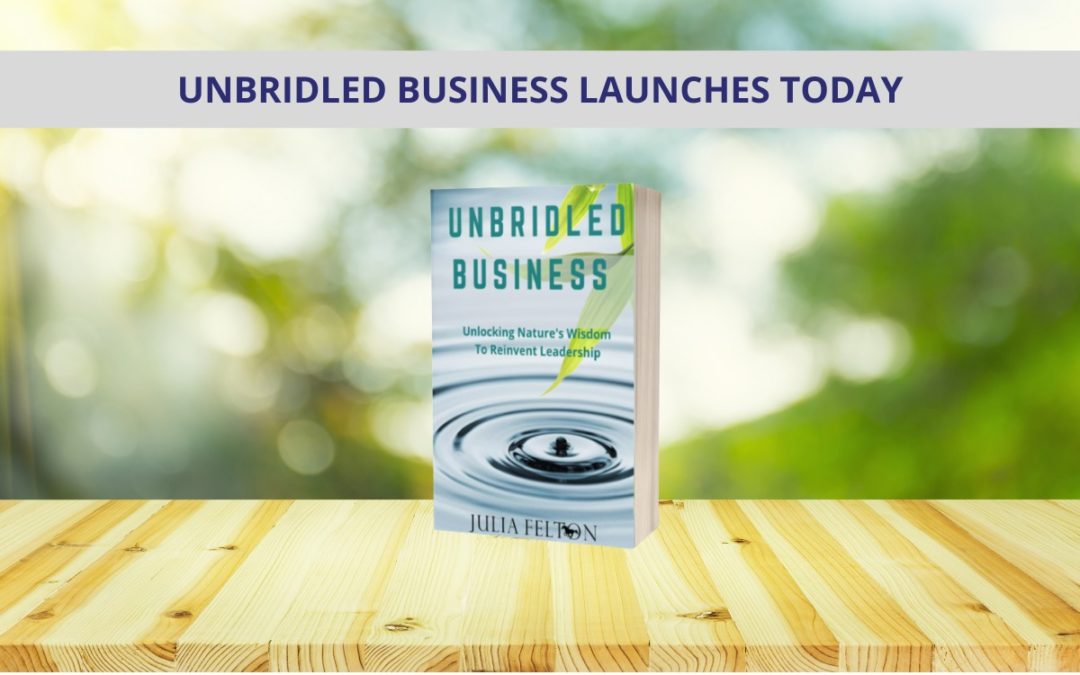
by Julia Felton | May 3, 2022
3 May 2022, Yorkshire, UK. – Julia Felton believes in a world where rather than humanity solving the problems of nature, nature can solve the problems of humanity. She believes that there exists in nature a blueprint for a better way to live and lead businesses and she presents these findings in her latest book, Unbridled Business: Unlocking Nature’s Wisdom To Reinvent Leadership.
There is no doubt that the events of the past two years have changed everything. Even before the pandemic business needed to change but recent events have accelerated this. No longer do businesses simply need to change, they need to reinvent if they are to become agile and adaptable to navigate the uncertainty in which we now live.
We now have the opportunity to shed all the old work practices that no longer serve us and start afresh.
The challenge is that up to now there hasn’t existed a blueprint on how to do this. How do we move from the command and control leadership structures designed for the industrial age to a leadership style based on connection, collaboration and community?
Julia discovered that a solution lies in nature and herds of horses. After all, they have navigated change and survived for millions of years. In Unbridled Business, she codifies this solution into the Unbridled Business BlueprintÔ that can be used to help business leaders reinvent their business so that it is fit for purpose for the 21st century.
It all starts with Embedding The Purpose into everything you all and then Evolving The Leadership, Empowering Others To Act and Engaging The Environment and the result is Unbridled Performance. A business that can create real impact whilst delivering increased productivity, profitability and team engagement.
Why look to nature and herds of horses?
1) Adaptability – Horses have existed on the planet for over 50 million years, whilst humans have only lived here for 6 million years. They have learnt how to become agile and adapt to changing situations to survive.
2) Leading Through Uncertainty – There exists in herds of horses a model to help us lead through the uncertainty, that this VUCA world presents. It’s based on the premise of four simple steps – The Diamond Model of Leadership.
3) Shared Leadership – In this attention vying world there is simply no way that one person (typically the leader) can know everything. Now more than ever there is a need for Shared Leadership, with the best person stepping forward at the right time.
One of the biggest awakening moments for humanity from the Pandemic is that we are all inter-dependent and inter-connected. We all impact each other whether we are consciously aware of it or not. Nature has always understood the power of inter-dependency as everything works as a system in harmony together, and when something falls out of balance nature self-regulates itself to correct that imbalance. Nature understands the importance of the collective “we” rather than the “me” model of being that is so prevalent in society today.
These are all themes that Julia has addressed in her latest book Unbridled Business – Unlocking Nature’s Wisdom To Reinvent Leadership due for release 3rd May.
To book Julia for an interview today, please contact her:
Phone: +44 7710 124848
Email: connect@businesshorsepower.com
Website: www.businesshorsepower.com
Follow Her on Social Media:
www.linkedin.com/in/juliafelton
www.facebook.com/juliamfelton
www.twitter.com/julia_felton
Julia Felton (aka The Business Wrangler) is the founder of Business HorsePower. Business leaders, entrepreneurs and executives hire her to accelerate their business performance by harnessing the energy of their people to work more collaboratively together. By aligning purpose with actions the team achieves exponential results as everyone starts pulling in the same direction.
Julia believes that business is a force for good and through designing purpose-driven businesses that leverage the laws of nature, and the herd, you can create businesses founded on the principles of connection, collaboration and community that make a significant impact in the world.
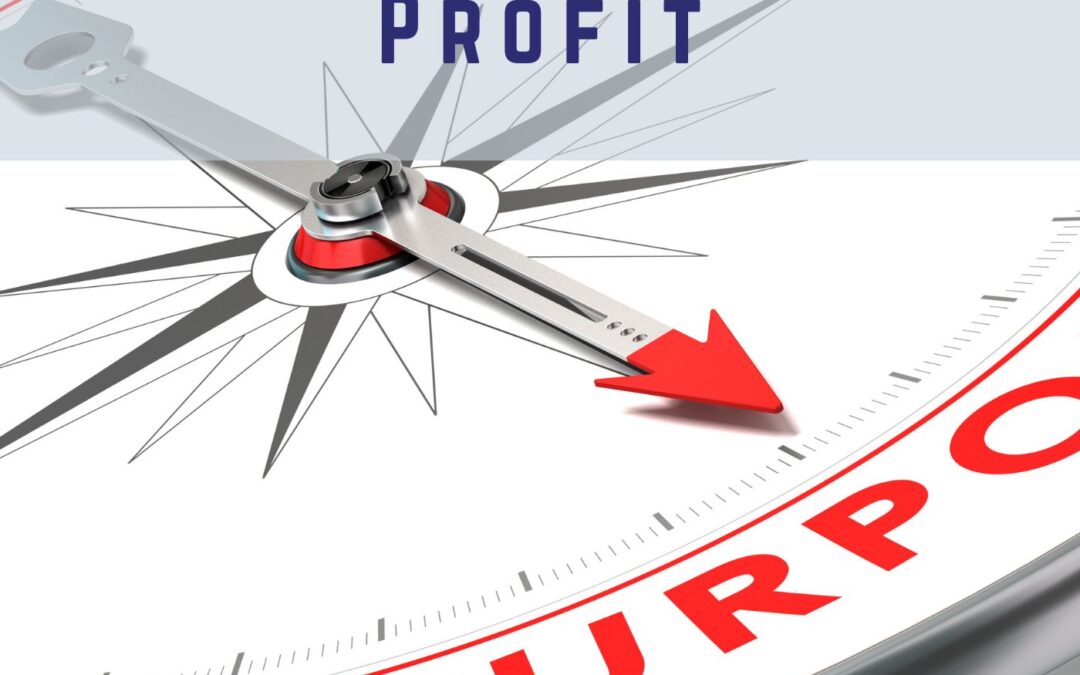
by Julia Felton | Jun 27, 2021
In this podcast, Julia and Andrew turn their thinking towards purpose. What is purpose and how has this changed with the impact of Covid-19. The discussion was sparked by a McKinsey quarterly article about purpose shifting from why to how. Julia was really inspired by this article, because she has been talking for a long time about purpose, and why it’s important for companies to have purpose, and we often talk about purpose before profits people have started to reevaluate what their own personal purpose is, and how they want to contribute to society.
Business is a force for good. But the more that organisations can get clear on their purpose, and collectively with their team members get clear on the purpose of the business, I think it absolutely gives people that NorthStar, you know people know where they’re going. And that gives them the safety and security and certainty that many of us have been lacking over the last few months.
The duo also touch on the impact of Covid-19 on the corporate social responsibility agenda. Andrew talks about the recent documentary on the planet with Prince William and how young people are changing their attitudes. They delve into John Mackey, Conscious Leadership to look at purpose along with Simon Sinek’s The Infinite Game where he clearly sets out the difference between a finite and an infinite mindset. They then discuss companies that practice what they preach.
Purpose is about that beating heart in the organisation, pushing blood and oxygen, that excitement, that infectiousness that it talks about in a positive infectiousness around the organisation. It is about creating win-win situations by getting your teams galvanized behind your purpose.
Show Notes:
Here are the highlights from this episode
- 00:46 McKinsey Quarterly: Purpose: Shifting from why to how April 2020
- https://www.mckinsey.com/business-functions/organization/our-insights/purpose-shifting-from-why-to-how#
- 01:44 Why it is important to have purpose
- 03:47 It’s more than just ticking boxes it is about hard wiring it into the DNA of a business.
- 04:33 A few years ago, Unilever came up what they called a massive transformational purpose for each of their different brands. And the brands that are totally have fully embraced this.
- 05:21 Ethical and moral dilemmas related to Covid-19 volunteering
- 07:00 How young people are changing attitudes.
- 10:25 the significance of what it means to write about issues in company reports
- 12:36 Conscious Leadership John Mackey
- 13:35 The Infinite Game Simon Sinek
- 13:56 https://www.zappos.com/
- 19:44 ”… when stakeholders so for stakeholders, we could read customers, employee shareholders anyone participate in and help evolve an organization’s higher purpose, it can be infectious. The whole company receives an extra boost of alignment. There are a few things More powerful than a shared commitment to a higher purpose among all relevant stakeholders, this allows everyone to feel connected to the beating heart of the organisation, at least to some degree…” Conscious Leadership John Mackey.
- 23:00 “When stakeholders see important decisions being made in ways that are aligned with the company’s core values. And when they see leaders actually engaged with that higher purpose. It has enormous impact, for lack of a better word, it gives people faith.” Conscious Leadership John Mackey
Julia Felton (aka The Business Wrangler) is the founder of Business HorsePower. Business leaders, entrepreneurs and executives hire her to accelerate their business performance by harnessing the energy of their people to work more collaboratively together. By aligning purpose with actions the team achieves exponential results as everyone starts pulling in the same direction.
Julia believes that business is a force for good and through designing purpose-driven businesses that leverage the laws of nature, and the herd, you can create businesses founded on the principles of connection, collaboration and community that make a significant impact in the world.
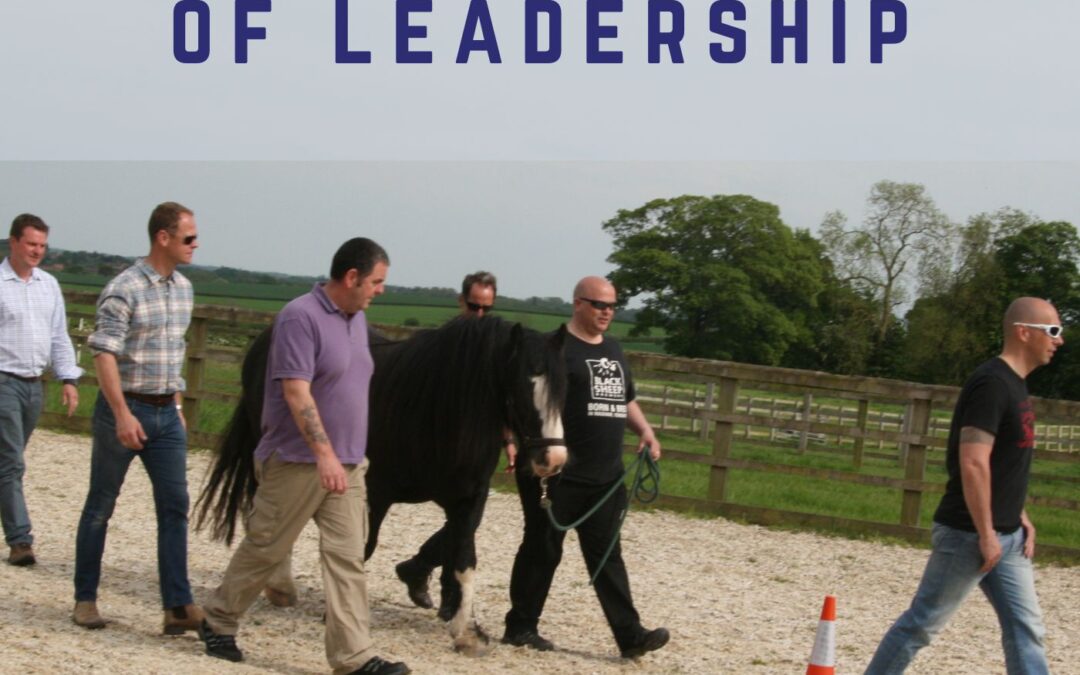
by Julia Felton | Apr 15, 2021
With the backdrop of a COVID pandemic Julia and Andrew tackle leadership and discuss various models linked to the herd.
There’s a real need for leaders to be agile and flexible. So what does that mean to Julia and Andrew? We find out through a canter looking at how the herd operates and challenging old styles of leadership
During the discussion the pair draw a direct link between how good our leaders are and their ability to navigate the current situation, inspire and motivate others and the results of the company. Finding a direct linear connection and empirical evidence of how if we’ve got better leaders, we can actually improve team performance and get better results.
The couple touch on the importance of and learning and development because there is a point at which leadership, when we’re looking at leadership, those that are planning and looking at how things are run, do need to have more of a commercial mind about them.
In essence we are all leaders, but what could shared leadership look like in an organisation and what can we learn from the herd?
Julia sets out how the mare leads at the front and the stallion at the back but what happens at the side this leads to dialogue on collaboration and the importance of empowering your teams. To round off the conversation Julia and Andrew look at the impact on millennials
Show Notes:
Here are the highlights from this episode
- 01:00 The need to develop better leaders
- 01:42 Is leadership a soft skill?
- 01:52 The concept of shared leadership
- 02:47 Comparing the old styles of leadership
- 04:40 What is shared leadership and how do we learn from the herd?
- 05:05 It’s about leading from the front
- 05:34 Pull / push energy
- 06:45 Channeling energy
- 07:00 Who is leading and who is providing energy from the back?
- 09:00Leading from the side
- 10:13 Being a herd member means you are still a leader
- 10:57 The power of empowerment
- 11:50 Accountability
- 12:54 It’s back to nature
- 13:57 Deloitte Human Capital Survey 2020
- 16:35 Jim Collins the importance of talent
Julia Felton (aka The Business Wrangler) is the founder of Business HorsePower. Business leaders, entrepreneurs and executives hire her to accelerate their business performance by harnessing the energy of their people to work more collaboratively together. By aligning purpose with actions the team achieves exponential results as everyone starts pulling in the same direction.
Julia believes that business is a force for good and through designing purpose-driven businesses that leverage the laws of nature, and the herd, you can create businesses founded on the principles of connection, collaboration and community that make a significant impact in the world.
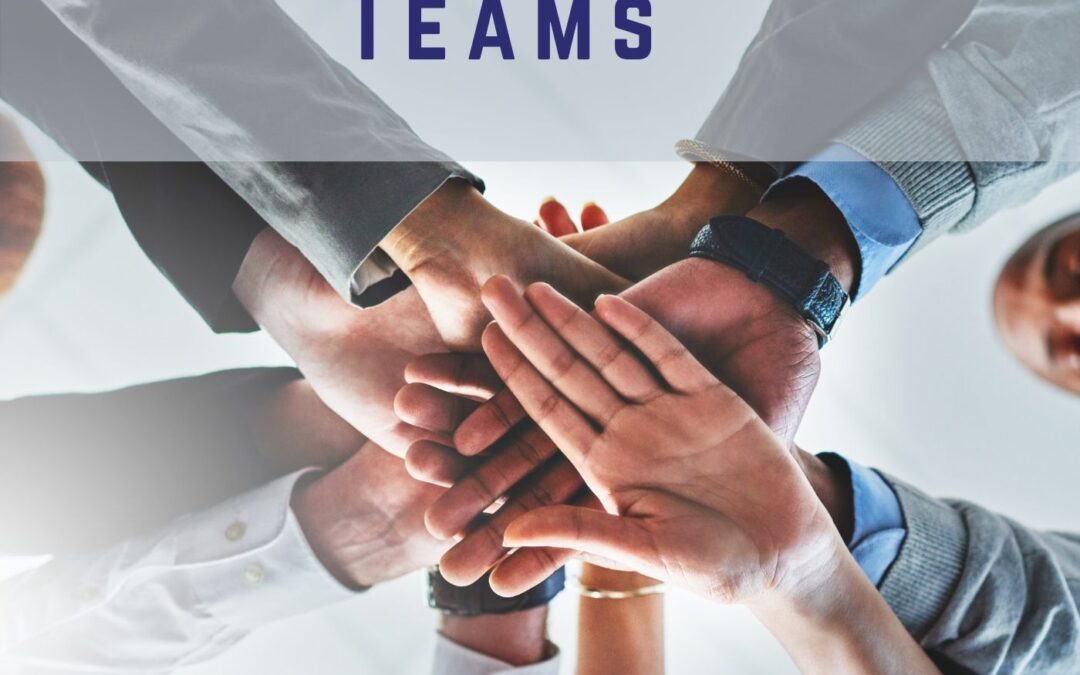
by Julia Felton | Mar 4, 2021
In this episode Julia and Andrew look at to re-engage your teams as they start to return to work after furlough or a long period of home working.
Julia introduces a seven step pyramid model on how to start the process of rebuilding relationships based on what she learned from a horse trainer in America. The trainer observed horse rituals at a waterholes and how the horses interacted with each other to build relationships within the herd.
Horses are good at hanging out together doing something and doing nothing. And in the workplace, when we were actually physically in the workplace, the doing nothing would be the bit for Julia and Andrew, which is the water cooler talk, when we were hanging out. They pick up on the importance of reestablishing and developing good connections.
Andrew picks up on the importance of being self-aware about oneself and others and putting yourself into other people’s shoes and introduces a technique called Johari’s Window created by two American professors, Joe Luft and Harry Ingham, in the 1950s. So how do we press the connection reset button? What should we all be thinking about? It includes getting our body language right and knowing our own personal stories and how to use them in the reconnecting
Show Notes:
Here are the highlights from this episode
- 00:48 How do we get back to re-engaging in the workplace.
- 01:20 Waterhole rituals and the human water cooler conversations
- 01:48 Horses are good at hanging out together doing something and doing nothing
- 03:10 The magic of relationships comes in that time when we just hang out.
- 04:55 The importance of the self-awareness dial
- 06:10 Johari’s Window – devised in the 1950s by and they were two psychology professors in California.
Julia Felton (aka The Business Wrangler) is the founder of Business HorsePower. Business leaders, entrepreneurs and executives hire her to accelerate their business performance by harnessing the energy of their people to work more collaboratively together. By aligning purpose with actions the team achieves exponential results as everyone starts pulling in the same direction.
Julia believes that business is a force for good and through designing purpose-driven businesses that leverage the laws of nature, and the herd, you can create businesses founded on the principles of connection, collaboration and community that make a significant impact in the world.
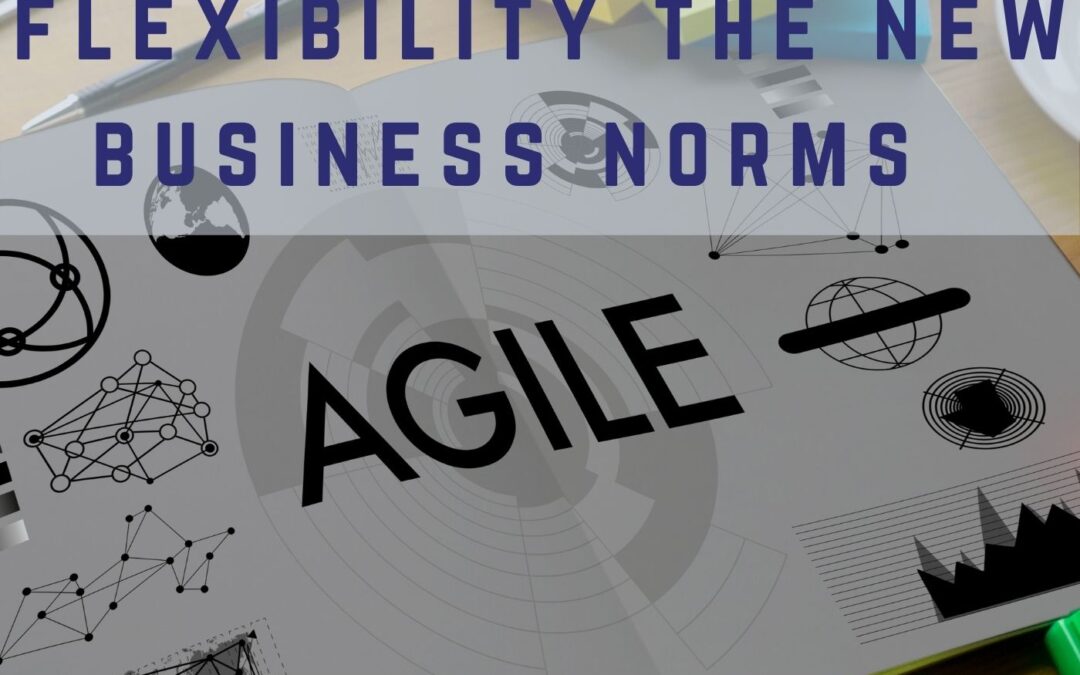
by Julia Felton | Mar 1, 2021
The importance of agility and being agile and flexible in a fast moving world is explored in this episode of Impactful the Podcast, especially with the threat of potential and UK-wide local lockdowns.
The Impactful duo look at the problems with a rigid working practices and what we can learn from the recent national lockdown. Julia and Andrew look at structure relating it to a pendulum swinging between structure and no structure and what that shows us in terms of fluidity, freedom and security. They bring in their personal experiences to highlight how we can adapt to build momentum.
Julia discusses a piece of research that Accenture did on leadership imperatives for an agile business and its three pillars here, of what is called demystifying leadership and what we can learn from high performance leaders. Now we’re all coming back to work and everyone’s got very different agendas about how they want to return it comes down to different levels of flexibility and agility to respond to what’s going on and which is very, very different.
Can businesses be agile and flexible? Andrew talks about the importance of communication especially internally and the two then chat about employee engagement with reference to Robert Dilts logical levels of change, looking at environment behaviours, capabilities, beliefs, identity, identity, and purpose.
Show Notes:
Here are the highlights from this episode
- 01:54 Importance of transferable skills in the workplace
- 02:39 Are there barriers?
- 03:07 Structures operating like a pendulum
- 03:22 Structure gives freedom
- 03:40 Structure security
- 04:47 Proactive & Reactive – learning from the herd
- 09:15 Accenture Report – The Three Pillars
- 09:58 Pulling in the same direction
- 10:55 Shared Consensus
- 11:18 Talent & Skills
- 13:05 Employee engagement and internal comms
- 14:28 The Comfort zone
- 16:12 Trust as a leader
- 16:56 Robert Dilts – Logical Levels of Change
Julia Felton (aka The Business Wrangler) is the founder of Business HorsePower. Business leaders, entrepreneurs and executives hire her to accelerate their business performance by harnessing the energy of their people to work more collaboratively together. By aligning purpose with actions the team achieves exponential results as everyone starts pulling in the same direction.
Julia believes that business is a force for good and through designing purpose-driven businesses that leverage the laws of nature, and the herd, you can create businesses founded on the principles of connection, collaboration and community that make a significant impact in the world.
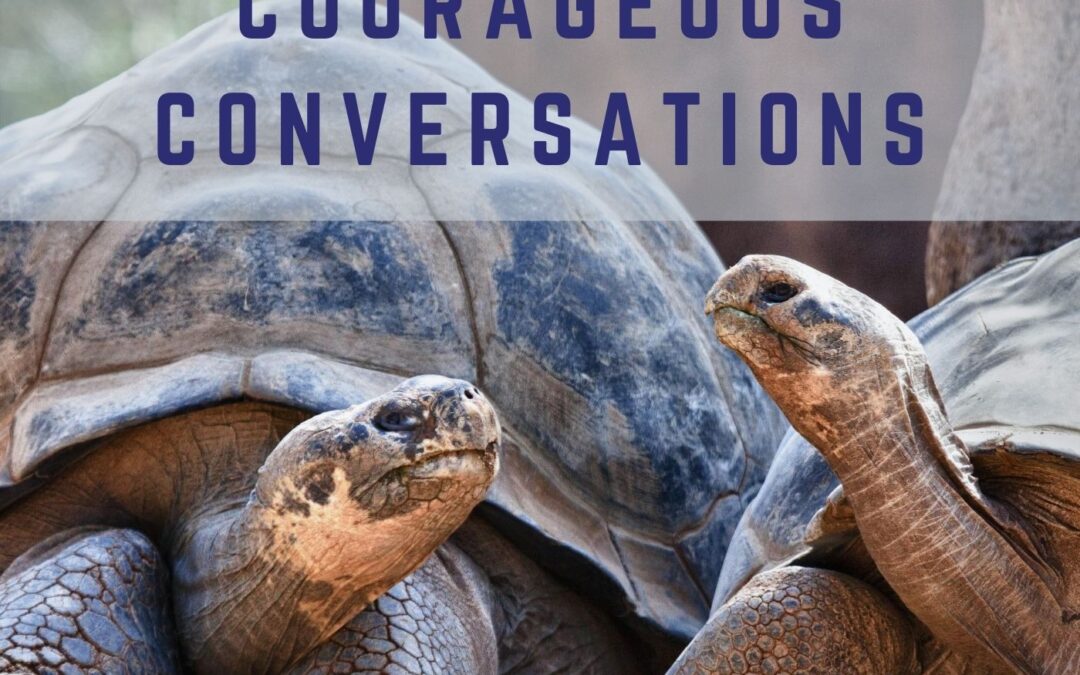
by Julia Felton | Dec 1, 2020
As leaders, we all know that we need to sometimes have difficult conversations. Julia refers to them as courageous conversations.
These are conversations, which, if they took place, would improve life for us and everyone else in our teams. The problem is that fear often causes us to put this off and, as a result, the offending team member continues to provide sub-standard performance, miss deadlines, engage interpersonal conflicts and exhibit ‘toxic’ behaviour.
Andrew and Julia discuss the emotions involved and how important thoughtful, unambiguous and honest conversations are. During their conversation they look at feedback, different personality styles and tapping in to your inner self.
In Julia’s book The Alchemy of Change she gives tips on how to approach courageous conversations using a framework that she calls the 6 C’s to successful Courageous conversations:
Centre: the key that you stay in charge of yourself, your purpose and your emotions energy throughout any courageous conversations remembering to breath.
Clarity: being clear on the reason for the conversation and the outcome that you desire
Curiosity: cultivating an attitude of discovery and curiosity.
Coherence: showing you’ve heard and understood and trying to understand the other person so well you can make their argument for them.
Congruence: when you sense the other person has said all they want to, then it’s your turn
Co-Create Closure: building new solutions.
Communication is essential in business. Learning to read body language and listening is essential to notice any inconsistencies in what is being said.
Show Notes:
Here are the highlights from this episode
- What are courageous conversations (00:50)
- Emotions (2:34)
- The Six-Step Process (3:30) Email us for our fact sheet
- Being Centre and Present (4:19)
- Clarity on Outcomes (5:00)
- Curiosity (5:32)
- Coherent (6:20)
- Congruent (6:44)
- Co-Create (7:06)
- Make Gravitas count (8:46)
- The Power of the Horses to lead the way (9:56)
- Creating Time & Space ( 12:57)
- Understanding Personality Types (15:43)
- The Chair Exercise (18:17)
Julia Felton (aka The Business Wrangler) is the founder of Business HorsePower. Business leaders, entrepreneurs and executives hire her to accelerate their business performance by harnessing the energy of their people to work more collaboratively together. By aligning purpose with actions the team achieves exponential results as everyone starts pulling in the same direction.
Julia believes that business is a force for good and through designing purpose-driven businesses that leverage the laws of nature, and the herd, you can create businesses founded on the principles of connection, collaboration and community that make a significant impact in the world.

by Julia Felton | Dec 1, 2020
No one doubts that many of us are struggling with Zoom fatigue and meeting overwhelm as a result of working from home over the last six months. In my experience, many business leaders are not very skilled at running effective meetings. Now that the process has morphed on-line, their skills, in many cases, are definitely not up for the job.
The challenge is that with more and more people working remotely, it is essential that we hold regular meetings to ensure that everyone is kept in the loop and knows what is happening. There is so much conversation that is “lost” when we are not working in close proximity to each other. This “lost conversation” is what I refer to as the water cooler talk. It’s the time when you learn informally how other projects are doing, how other colleagues are feeling, and generally get a sense of what is going on in the business. It’s also a time that we can informally share resources with each other and provide guidance on different approaches to solve problems.
With this mechanism taken away from us, at least for the time being, how do leaders structure meetings to be effective, deliver results, keep team members engaged, and not waste people’s valuable time? One framework that I have found to really work is the EPIC Meeting Framework™, devised by the team at Engagement Multiplier. They use it for all their meetings as it puts an end to pointless gatherings that waste time and slow momentum. Instead, by adopting this simple framework, they have been experiencing a significant increase in team engagement and productivity over the last few months. So let’s unpack this 4 step framework and show you how you can use it in your business.
1) Energy
Why It’s Important: Boosting energy at the beginning of a meeting sets the stage for more productive conversations and, ultimately, better meeting outcomes.
How Do You Do It: Get everyone to speak at the start of the meeting by sharing one thing they’re feeling great about right now (it can be work related or personal related).
The Outcome: Team members will be engaged and start contributing to the meeting leading to better results.
2) Purpose
Why It’s Important: Every meeting needs to have a purpose, as well as clearly defined outcomes, as it is impossible to run an effective meeting unless everyone is clear on why they are there and the outcome required.
How Do You Do It: Distribute an agenda in advance that states the purpose, objectives, and what needs to be true at the end of the meeting, as opposed to simply listing points for discussion.
The Outcome: Team members come prepared and solution focused. Consequently, meetings become faster and more efficient when the focus is placed on outcomes.
3) Insight
Why It’s Important: During the exchange of ideas and perspectives, new opportunities emerge that create transferable insights. Sharing these insights amplifies the value and productivity of any meeting.
How Do You Do It: At the end of the meeting, ensure that everyone shares at least one unique insight or learning they’ve derived as a result of attending.
The Outcome: Being able to capture opportunities and connections in real time between people can help spark more innovation, and amplify the value of the meeting for all attendees.
4) Connection
Why It’s Important: Getting team members aligned behind a shared purpose ensures everyone is on the same page and builds connection within the team. Team members are more confident their inputs and efforts will be appreciated, so are more willing to speak up and express their opinions. Culture and purpose are thus reinforced.
How Do You Do It: By encouraging adoption of these habits and the structure for the meeting.
The Outcome: Barriers to progress caused by poor communication and lack of direction are overcome and the team adopts a much more agile culture towards working.
So my invitation to you as leader is, go and try the EPIC Meeting Framework™ and let me know what is does for your next meeting. I’m sure you will be pleasantly surprised by the results, and the increased levels of engagement that you get from your team members.
Julia Felton (aka The Business Wrangler) is the founder of Business HorsePower. Business leaders, entrepreneurs and executives hire her to accelerate their business performance by harnessing the energy of their people to work more collaboratively together. By aligning purpose with actions the team achieves exponential results as everyone starts pulling in the same direction.
Julia believes that business is a force for good and through designing purpose-driven businesses that leverage the laws of nature, and the herd, you can create businesses founded on the principles of connection, collaboration and community that make a significant impact in the world.

by Julia Felton | Oct 27, 2020
In this episode we talk around boundaries and what they mean especially in the workplace and for us both and how the horses have been masters at teaching Julia all about boundaries.
The word boundary is a word in common use and for clarity Julia defines it as “a limit, something we will permit or not into our lives”. Our boundaries define what type of person we are and therefore the opportunities that we’re going to let in our life. Often a boundary can be imagined like a fence that we’ve got around ourselves, and it’s our responsibility to ensure that that fencing is in good repair, because otherwise we’ll let things into our lives that we don’t really want.
Our physical boundaries are probably the ones that we’re most familiar with, in terms of people that we let into our personal space. There also mental and psychological boundaries as well as spiritual boundaries. So, a boundary is really shaping what we’re going to allow into our lives and why is that important? It helps create real clarity about what we want into our lives and what we don’t want into our lives.
Julia explains the problems about not setting boundaries by recalling stories with the horses. After all boundaries are there to protect us and what clients get out of working with her horses.
Andrew then shares a workplace story which leads on to a discussion around the benefits of contracting.
Julia and Andrew then discuss how anger and resentment can build up in personal relationships before summing up
Show Notes:
Here are the highlights from this episode
- What are boundaries? (00:45)
- What are the different types of boundaries? (1:37)
- Boundaries are there to protect us (2:38)
- The Aha moment – learning from the horses (3:55)
- Contracting in the workplace (5:52)
- The box model of contracting (6:20)
- Bracken teaches Julia about trust (7:12)
- Rules of the game (11:38)
- The working from home trust problem (15:15)
- The problem of not speaking up (17:11)
- Having honest conversations (18:24)
Julia Felton (aka The Business Wrangler) is the founder of Business HorsePower. Business leaders, entrepreneurs and executives hire her to accelerate their business performance by harnessing the energy of their people to work more collaboratively together. By aligning purpose with actions the team achieves exponential results as everyone starts pulling in the same direction.
Julia believes that business is a force for good and through designing purpose-driven businesses that leverage the laws of nature, and the herd, you can create businesses founded on the principles of connection, collaboration and community that make a significant impact in the world.
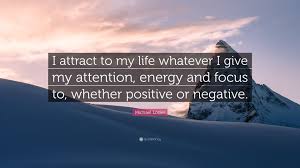
by Julia Felton | Oct 11, 2020
With so much going on in our lives how do we get anything done, and prioritise what needs to be accomplished. In this article I look at the key components that help ensure an idea moves from just that, an idea into action. These are the exact same techniques that I used to help me get my lovely ponies Bracken and Thistle under saddle.
“Daily routines, superficial behaviours, poorly prioritized or unfocused tasks leech managers’ capacities—making unproductive busyness perhaps the most critical behavioural problem” in business today, contend Heike Bruch and Sumantra Ghoshal in their book A Bias for Action.
For so many of us—whether CEOs for major corporations, small business owners or solo-entrepreneurs—there is a fundamental disconnection between knowing what should be done and actually doing it. Calling this disconnection the “knowing-doing gap,” Stanford University researchers Jeffrey Pfeffer and Robert Sutton pose the question: “Why does knowledge of what needs to be done frequently fail to result in action or behaviour consistent with that knowledge?”
Is there anyone in business today who hasn’t wondered the same thing?
The answer, argue Bruch and Ghoshal, is both simple and profound. They sum it up with the term “willpower.” The problem they say is not that managers’ time is sliced, but that their intention or “volition” is sliced as well.
Getting things done requires two critical components: energy and focus.And both are at risk in the modern workplace. Building a bias for action in yourself and your organization requires developing and reinforcing the skills to become a “purposeful” or “volitional” manager. These are people who can consistently achieve their objectives by making an unconditional commitment to their goals and then leveraging the power of that intention to overcome the obstacles in their way, whether their own doubts or the bureaucracies within their organizations.
“Purposeful action-taking depends on engaging the power of the will,” according to Burch and Ghoshal. “Not only does willpower galvanize your mental and emotional energy, it also enables you to make your intention happen against the most powerful odds: distractions, temptations to move in a different direction, self-doubt, and negativity. Willpower is the force that strengthens your energy and sharpens your focus throughout the action-taking process.”
Burch and Ghoshal identify four key steps that form the basis of successfully taking action:
Form your intention. To work, your goal must appeal to you emotionally and be something you can define concretely enough so you can clearly visualize its success.
Commit unconditionally to your intention. This is the key step, which the authors liken to “crossing the Rubicon,” Caesar’s irreversible decision that led to his conquest of Rome.
Protect your intention. Once you have made your commitment, you have to protect it from forces both within yourself and your organization.
Disengage from your intention. Unlike Caesar, your Rubicons aren’t life-and-death affairs. You have to define your “stopping rules,” the point of success—or failure—from which you walk away and take up the next challenge.
From the commitment comes both the emotional energy and the focus that are critical to your success. In short, the process of getting things done in business is pretty much the same as in any other aspect of life: The only things that get done are those that you genuinely believe in, and believe will get done.
So just think about your day and how you can stay focused and set up for success. I’ve stopped taking calls when I’m focusing on a specific task and it is incredible how much more I get done. It tests me as just whilst writing this article a client called me. At first I wanted to take the call but then realised how my lack of focus in that moment would not be serving anyone. So I “missed” the call and will call them back once I’m finished.
How can you stay focused on the in hand and not get distracted by all the other activities happening around you? I’d love to hear how you cope.
Julia Felton (aka The Business Wrangler) is the founder of Business HorsePower. Business leaders, entrepreneurs and executives hire her to accelerate their business performance by harnessing the energy of their people to work more collaboratively together. By aligning purpose with actions the team achieves exponential results as everyone starts pulling in the same direction.
Julia believes that business is a force for good and through designing purpose-driven businesses that leverage the laws of nature, and the herd, you can create businesses founded on the principles of connection, collaboration and community that make a significant impact in the world.

















